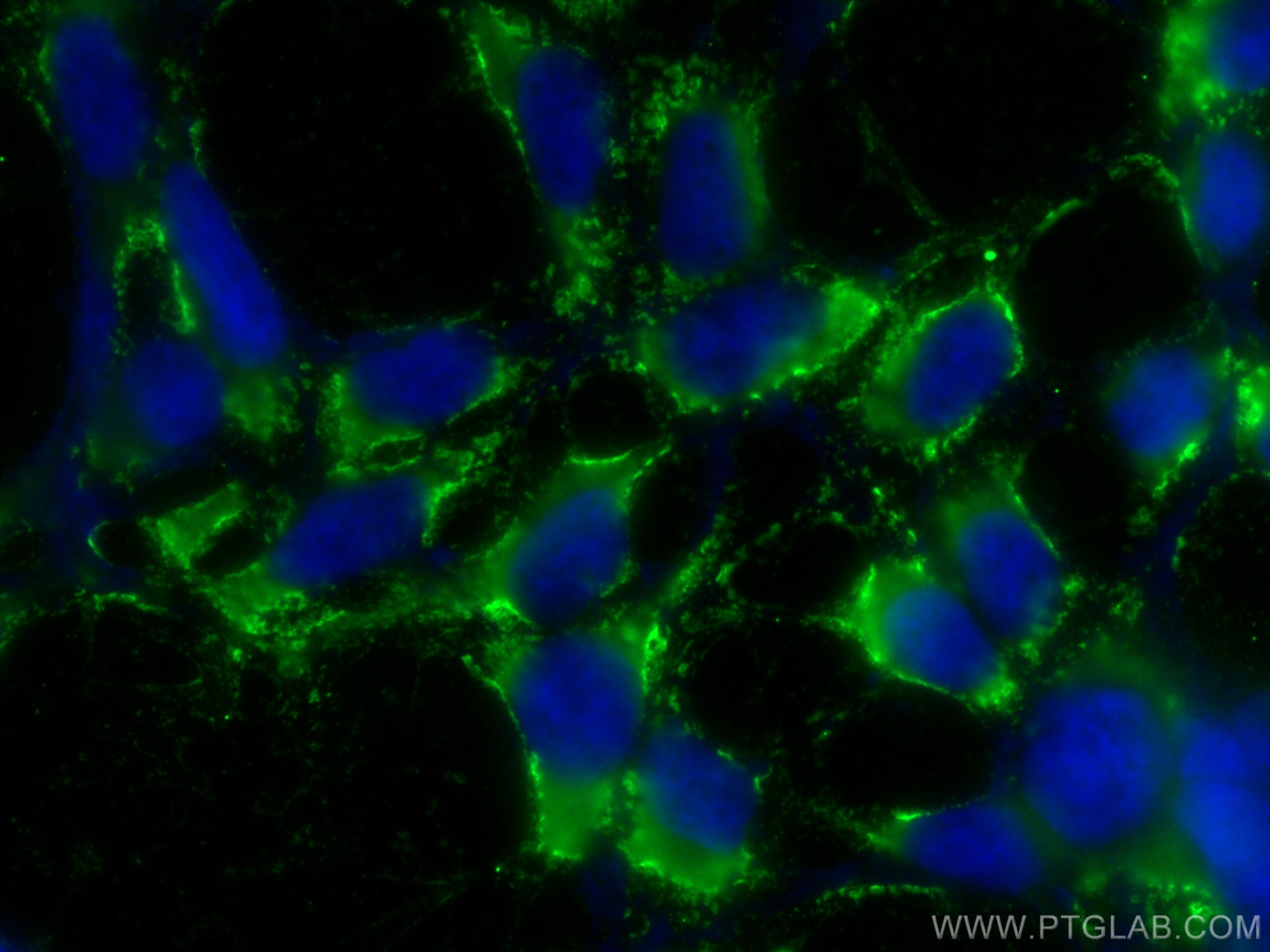Validation Data Gallery
Tested Applications
| Positive IF/ICC detected in | HEK-293 cells |
Recommended dilution
| Application | Dilution |
|---|---|
| Immunofluorescence (IF)/ICC | IF/ICC : 1:50-1:500 |
| It is recommended that this reagent should be titrated in each testing system to obtain optimal results. | |
| Sample-dependent, Check data in validation data gallery. | |
Product Information
CL488-67352 targets SEC63 in IF/ICC applications and shows reactivity with Human samples.
| Tested Reactivity | Human |
| Host / Isotype | Mouse / IgG1 |
| Class | Monoclonal |
| Type | Antibody |
| Immunogen | SEC63 fusion protein Ag5783 相同性解析による交差性が予測される生物種 |
| Full Name | SEC63 homolog (S. cerevisiae) |
| Calculated molecular weight | 88 kDa |
| Observed molecular weight | 90 kDa |
| GenBank accession number | BC047221 |
| Gene Symbol | SEC63 |
| Gene ID (NCBI) | 11231 |
| RRID | AB_3084337 |
| Conjugate | CoraLite® Plus 488 Fluorescent Dye |
| Excitation/Emission maxima wavelengths | 493 nm / 522 nm |
| Form | Liquid |
| Purification Method | Protein G purification |
| UNIPROT ID | Q9UGP8 |
| Storage Buffer | PBS with 50% glycerol, 0.05% Proclin300, 0.5% BSA |
| Storage Conditions | Store at -20°C. Avoid exposure to light. Stable for one year after shipment. Aliquoting is unnecessary for -20oC storage. |
Background Information
SEC63 is a integral ER membrane protein. SEC63 and SEC62 form a dimeric complex and play a central role in translocation of nascent and newly synthesized precursor polypeptides into the ER. Mutations in the gene encoding SEC63 cause polycystic liver disease in humans. The intact SEC63 protein is usually detected around 83-90 kDa, while smaller cleavage products can be observed by autophagy proteolysis (PMID: 25052096)
Protocols
| Product Specific Protocols | |
|---|---|
| IF protocol for CL Plus 488 SEC63 antibody CL488-67352 | Download protocol |
| Standard Protocols | |
|---|---|
| Click here to view our Standard Protocols |
